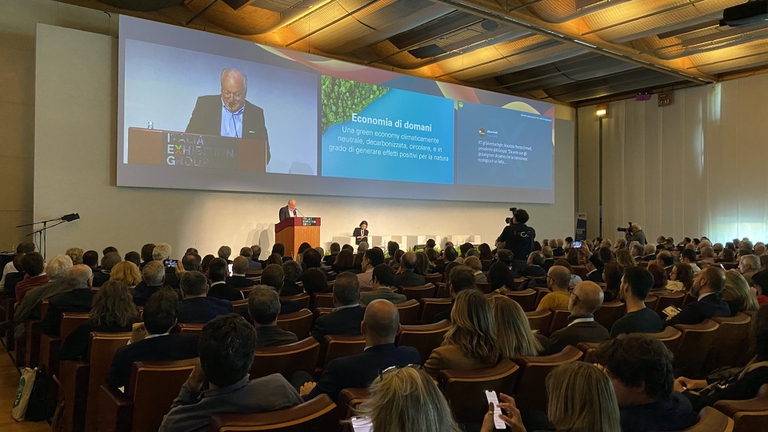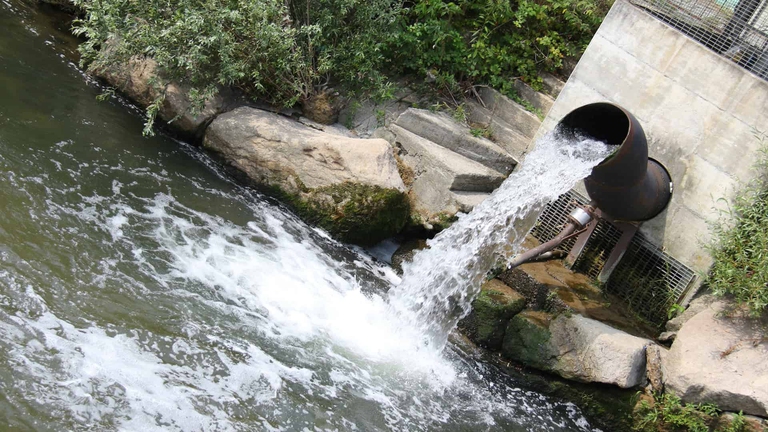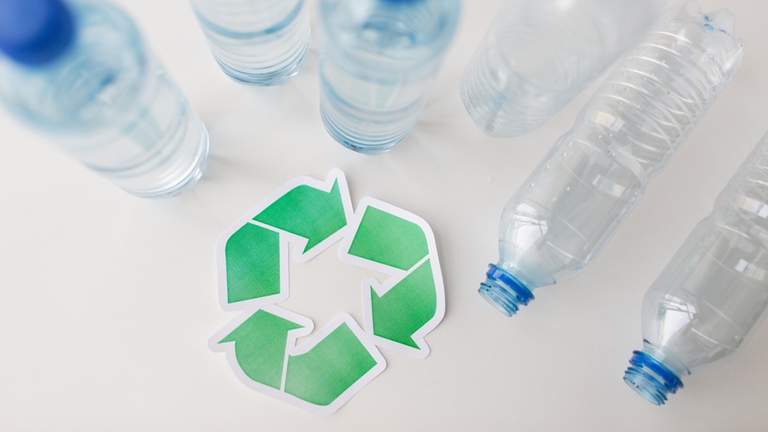https://www.lifegate.it/verso-stati-generali-della-green-economy-2024-intervista-raimondo-orsini
- |
This year too, the Ecomondo fair from 5 to 8 November in Rimini it will host the General states of the green economy, a now consolidated event for those who work in the manufacturing sector environmental sustainability and of ecological transition.Every year, this event represents a unique opportunity to take stock of progress and future prospects, involving leading players, from political institutions to businesses.

In view of the 2024 edition, scheduled for 5 and 6 November, we interviewed Raimondo Orsini, director of Foundation for Sustainable Development, the organizing body.Orsini offered an overview of the central themes, underlining the importance of this year's event, which is part of a political moment of great importance, between the start of the mandate of the new European Commission, the American and Italian regional elections, and the Baku climate cop, which will take place a few days later.
General states of the green economy at Ecomondo:plenary sessions and insights
The structure of the event remains unchanged compared to previous years, with two large plenaries and the in-depth sessions.As Orsini explains:“This scheme remains unchanged because it allows us to alternate specific insights with broader visions.”
This year's news concerns the contents, selected to address the most urgent and relevant challenges of the moment.For this reason, the plenaries will focus on the future of European green deal, recently confirmed by the new European Commission, and the decarbonisation on a global scale.
Raimondo Orsini describes the Green deal as “the backbone of a new European industrial leadership”.The objective of the States General will be to analyze its cornerstones to evaluate whether Europe can maintain or increase its own world leadership in the green economy sector.According to Orsini, the Green deal also offers Italy the opportunity to consolidate its role in the green transition, but he also warns that it risks turning into a more ideological than strategic issue.“The objective of the States General will be precisely this:investigate which are the sectors in which our country can grow", thus bringing the debate back to a pragmatic plan, capable of offering concrete solutions.
The second plenary will address the topic of decarbonisation, influenced by international political developments, in particular by the upcoming American elections and the Baku climate COP.
“During the States General, we will receive real-time updates on the US presidential elections and know who the next president of the United States will be.This moment is crucial, since the climate and industrial policies of the United States, together with those of China and Europe, determine the trend of global climate policies (...) On the other hand, these three actors, alone, generate over 60-70 percent of global emissions,” explains Orsini, who adds that, on the other hand, the Baku climate COP, although not decisive, will also be closely linked to international politics, focusing mainly on the financing necessary to combat the climate changes.
A focus on Italian companies
These two macro-themes will be analyzed with particular attention to the repercussions on Italian companies, thanks also to direct testimonials from companies, who will share their experiences and initiatives undertaken in this context.
The thematic sessions in the afternoon, however, they will delve into crucial topics such ascircular economy, with particular attention to new circularity measurement tools for businesses, and the topic of green city, which will focus on management of packaging waste recycling in cities with a panel organized in collaboration with Conai.The economy will also be explored “Positive natures”, which promotes the regeneration of ecosystems and natural capital by all businesses, even those operating outside the agricultural sectors.

Two other important themes will be there sustainable water management and the air quality.The first will be covered in a session in collaboration with the Dutch embassy, where Italy and the Netherlands will discuss good practices and opportunities for collaboration.Finally, air quality will be discussed with a focus on the Padano basin and on solutions to improve the current situation through an ecological transition of the most impactful sectors, also in light of the fact that Italy is among the countries in Europe with the highest number of deaths and serious illnesses caused by poor air quality, according to data from both the European Environment Agency and the World Health Organization.
The report on the state of the green economy
The importance of the States General also lies in the analysis of the current state of the Green Economy in Italy and the discussion of strategy as a country system, in order to understand the directions to take for the future.In this regard, another crucial moment will be the presentation of report on the green economy in Italy, of which Orsini anticipated some evidence.
The first fact is that, although Italy was once a leader in numerous sectors, it has recently undergone a slowdown:“At a European level, Italy has been surpassed in terms of performance and also environmental effects by some countries, which have gone faster than us,” explains Orsini.Among the most affected sectors are climate, transport and renewable energy, where Italy, despite being a leader in 2011, has seen a significant stalemate in recent years.

However, they are also there strengths, like the sector of recycling, where Italy is still the European leader with a very high circularity rate, and the manufacturing sector food, although challenges emerge in maintaining leadership in the production and consumption of organic products.“The Italian green economy has incredible excellence, but risks missing out in crucial areas,” concludes Orsini.
Public policies and investments:charting a course beyond ideology
The question of public support for the ecological transition is another sore point that Orsini addresses with some concern:“Public support for the ecological transition of companies through public investments is not yet considered a priority on the Italian political agenda, despite its potentially transformative impact for the industrial future of our country”, underlining instead the importance of seeing the ecological transition not only as a necessity linked to the future of the planet or the health of citizens, but also as a investment for the industrial future of the country.
The States General of the green economy 2024, therefore, are configured as an event of enormous importance, not only for the issues addressed, but also for the historical moment in which they take place.The intertwining of environmental challenges and international and national political dynamics makes a strategic and pragmatic approach even more urgent, leaving political ideology aside.As Orsini states:“I seem to perceive that the Clean Industrial Pact (ed.the industrial plan of the European Green Deal), i.e. the economic, industrial and employment effectiveness of an ecological transition for the economy, has not yet been well understood and metabolised by many Italian industrialists (...) Our objective in Rimini will be to make them change their minds."
